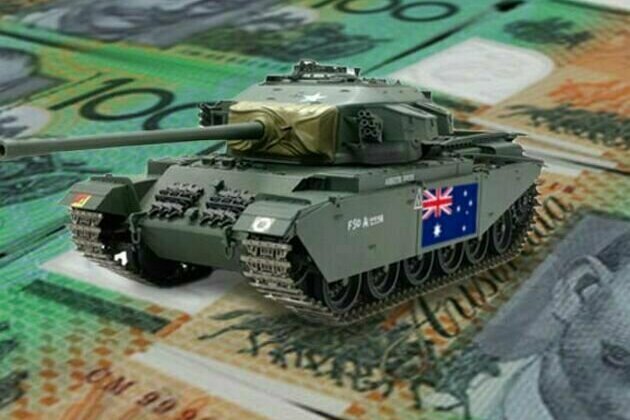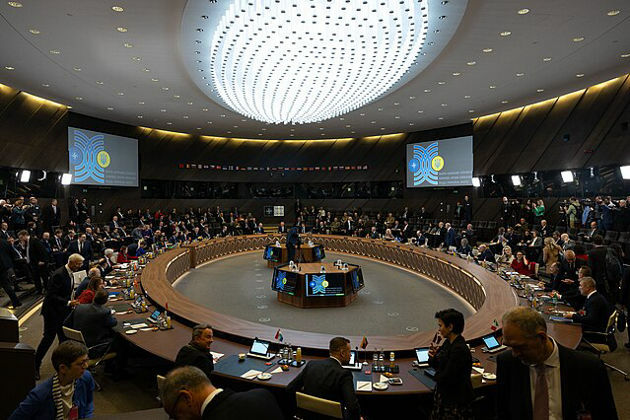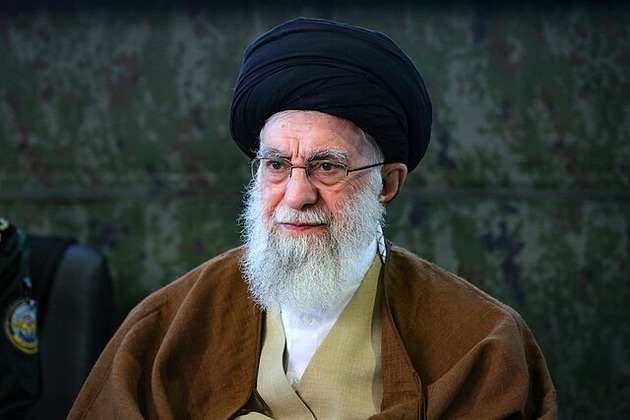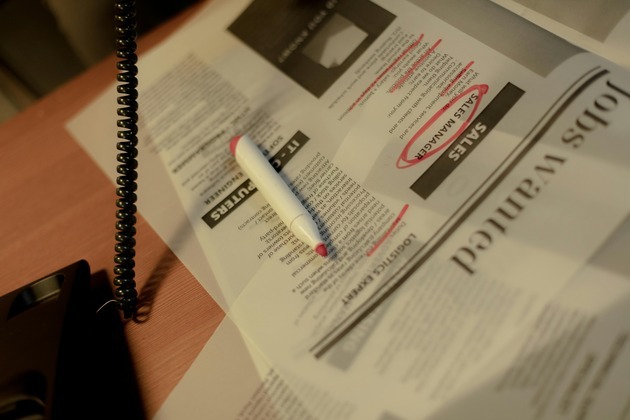Warfare has turned financial and Australia is dangerously unprepared
Independent Australia
27 Jun 2025, 11:30 GMT+10

The global battlefield has changed from ballistics to balance sheets, but Australia is still playing by old rules, writesVince Hooper.
WEVE LONG ACCEPTED that modern warfare isnt just fought with tanks and missiles. But Australia is only just waking up to the uncomfortable reality that money itself has become a weapon. And right now, were dangerously underprepared to fight back.
Financial warfare sanctions, asset freezes, cyberattacks on banks, capital market sabotage and coercive trade restrictions is no longer the stuff of U.S. Treasury press releases or spy novels. Its real, its here and Australia is increasingly in the crosshairs.
Just ask our wine producers, lobster exporters and barley farmers, caught in the crossfire of Chinas informal trade embargo. Or consider the Port of Darwin, leased to a Chinese company for 99 years. If Beijing decided to twist the economic knife during a Taiwan Strait crisis, how many strategic assets on Australian soil would be in their hands, not ours?
Australia's failure to sanction Israel a diplomatic and moral abdicationBy refusing to sanction Israel, Australia is exposing a double standard that threatens its claim to moral leadership on the world stage.
Despite being a globally integrated financial power, Australia lacks a dedicated institution to fight and win in this domain. Our regulatorsAUSTRAC,APRAand theRBAare strong but siloed. Our cyber defences are improving, but reactive. And our strategic posture? Still trapped somewhere between free-market purism and geopolitical navet.
Its time to get serious.
Australia needs a Financial Statecraft Command, a unit embedded in national security architecture, focused squarely on protecting and projecting Australias interests in the financial and economic domain. Think of it as a Treasury-Defence hybrid, where spreadsheets meet strategy, and where sanctions, cyber, investment screening and counter-coercion planning are fused into one mission.
This isnt about weaponising the economy recklessly its about ensuring others cant weaponise it against us.
Why now? Because the battlefield is already shifting
We dont just export coal and iron ore, we export geopolitical leverage. Australia is sitting on vast reserves of critical minerals lithium, rare earths and cobalt that the global economy needs to power electric vehicles, defence systems and green technologies. In an age of techno-nationalism and supply chain wars, those rocks in the ground are national security assets.
And yet, much of our extraction and processing capacity is dependent on foreign capital, often from strategic competitors. If we dont control our mineral advantage, someone else will.
The same applies to our vast superannuation sector, now over $3.7 trillion, at least. Thats not just retirement savings, its sovereign economic firepower. In the hands of coordinated statecraft, that capital could be a tool for national development and global leverage. But left unmanaged, its just a juicy target for activist funds, foreign rating agencies or predatory environmental, social and governance(ESG) agendas.
Indeed, financial coercion doesnt just come from Beijing. The next attack may come from a global institution punishing Australia for daring to open a new gas field or refusing to submit to arbitrary climate quotas. Weve seen how ESG frameworks can become political weapons masquerading as neutral principles. Sovereignty isnt just about tanks on borders anymore its about control over your own balance sheet.
Trump is using Iran as a distractionAs protests, scandals and economic chaos close in on home soil, Trump's focus on Iran seems more like a diversion than a defence strategy.
The digital frontier
Then theres the looming risk of central bank digital currencies (CBDCs), including Chinasdigital yuan, which is already being piloted across Asia. These new forms of programmable money could one day be used to bypass the Society for Worldwide Interbank Financial Telecommunication (S.W.I.F.T.), avoid sanctions and even trigger real-time financial disruptions. In a future where monetary systems are weaponised, Australia must be prepared technologically and strategically.
Were not alone. The U.S. Treasury now works hand-in-glove with its intelligence and defence communities on financial targeting. In fact, the Pentagon itself integrates financial warfare capabilities into its operational planning, recognising that economic and fiscal tools are no less potent than military ones. From sanctions enforcement to currency destabilisation strategies, finance is now part of the Pentagons warfighting doctrine.
The UK has integrated economic deterrence into itsNational Security Strategy. Even Japan is creating safeguards for its payment systems and commodity exposure.
Australia, as part of theFive Eyesalliance, already shares world-class financial intelligence with its closest partners. But we contribute too little strategy and too much data. We need to shape policy, not just pass information. A Financial Statecraft Unit would give us the ability to not just react, but to lead.
What needs to happen?
Time to act
Australia has sent diggers overseas to defend its sovereignty for over a century. Today, that sovereignty is just as threatened, only now, its in bond markets, not battlefields. Its in terms of trade, not trenches. And its in how we defend our economy from becoming a hostage in someone elses game.
The world has changed. Power now flows through ports, currencies, rare earths and super funds. We cant afford to play catch-up in a war we didnt declare.
The spreadsheet is now a battlefield. Lets fight like it.
Vince Hooperis a proud Australian/British citizen who is professor of finance and discipline head at SP Jain School of Global Management with campuses in London, Dubai, Mumbai, Singapore and Sydney.
 Share
Share
 Tweet
Tweet
 Share
Share
 Flip
Flip
 Email
Email
Watch latest videos
Subscribe and Follow
Get a daily dose of Singapore Star news through our daily email, its complimentary and keeps you fully up to date with world and business news as well.
News RELEASES
Publish news of your business, community or sports group, personnel appointments, major event and more by submitting a news release to Singapore Star.
More InformationInternational
SectionThailand-Cambodia tensions rise as border rules tighten
BANGKOK, Thailand: This week, Thailand implemented land border restrictions, including a ban on tourists traveling to Cambodia, as...
Alliance eyes major military buildup to counter Russia
THE HAGUE, Netherlands: NATO is pressing ahead with a sweeping new defense spending target, calling on all 32 member nations to commit...
Mamdani leads NYC mayoral race in stunning upset over Cuomo
NEW YORK, U.S.: A political newcomer is on the verge of reshaping New York City politics. Zohran Mamdani, a 33-year-old state assemblyman...
Millions endure dangerous US temperatures, heat alert issued
MADISON, Wisconsin: Tens of millions of residents across the Midwest and East Coast faced dangerously high temperatures over the weekend...
Multiple Israeli troops die as armored personnel carrier is blown up in Gaza
KHAN YOUNIS, Gaza - Seven Israeli soldiers were killed in a large explosion in southern Gaza's Khan Younis area on Tuesday night,...
Khamenei remains in hiding as clerics fast-track succession plans
DUBAI, U.A.E.: Iran's top clerics are quietly accelerating succession plans for Supreme Leader Ayatollah Ali Khamenei, who was threatened...
Business
SectionRent freeze fears hit NYC banks, landlords as Mamdani leads
NEW YORK CITY, New York: New York City's financial markets reacted sharply this week as shares of local banks and real estate investment...
Starbucks refutes media report on plans to exit China
SEATTLE, Washington: U.S. coffee company Starbucks has said it is not planning to sell all of its business in China, even though a...
U.S. markets surge, Dow Jones jumps 404 points
NEW YORK, New York - U.S. stocks surged on Thursday, with Wall Street's major indexes climbing nearly 1 percent as investor optimism...
Job board pioneers CareerBuilder, Monster face bankruptcy
NEW YORK, U.S.: Two giants of the early internet job search era—CareerBuilder and Monster—have formally filed for bankruptcy protection,...
Amazon still trails UK grocers on fair supplier treatment
LONDON, U.K.: Amazon has once again been rated the worst major UK grocery retailer by its suppliers when it comes to following fair...
How Chinese vapes reach US stores despite import restrictions
LONDON/NEW YORK/CHICAGO: In suburban Chicago, just 15 minutes from O'Hare International Airport, a small customs brokerage quietly...













